It’s true that newborns are incredibly sensitive to their external environment even before they are born, especially when it comes to “recognizing people.” This can be considered an innate ability. As a result, some babies are only comfortable around familiar faces and may start crying when they see a stranger.
From a scientific perspective, there are three very practical reasons why newborns cry around certain people.
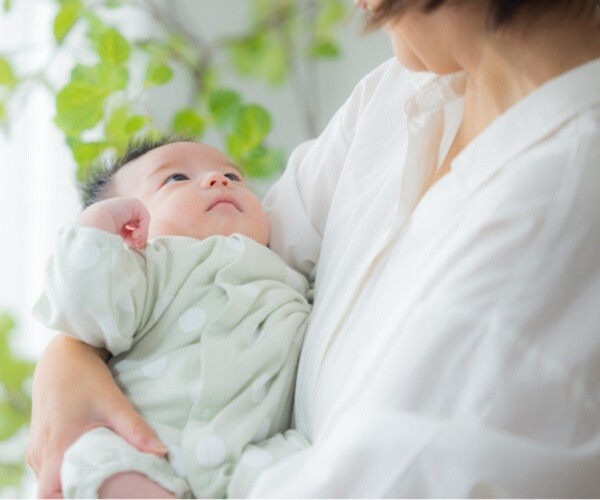

Newborns have their own “aesthetic standards”
Many people don’t realize that newborns have a sense of aesthetics. A mother shared that her six-month-old son particularly enjoyed the company of beautiful women. He would smile and even babble happily when held by them.
However, his expression would immediately change, and he would start crying if he encountered an older man or a female relative with a less youthful appearance.
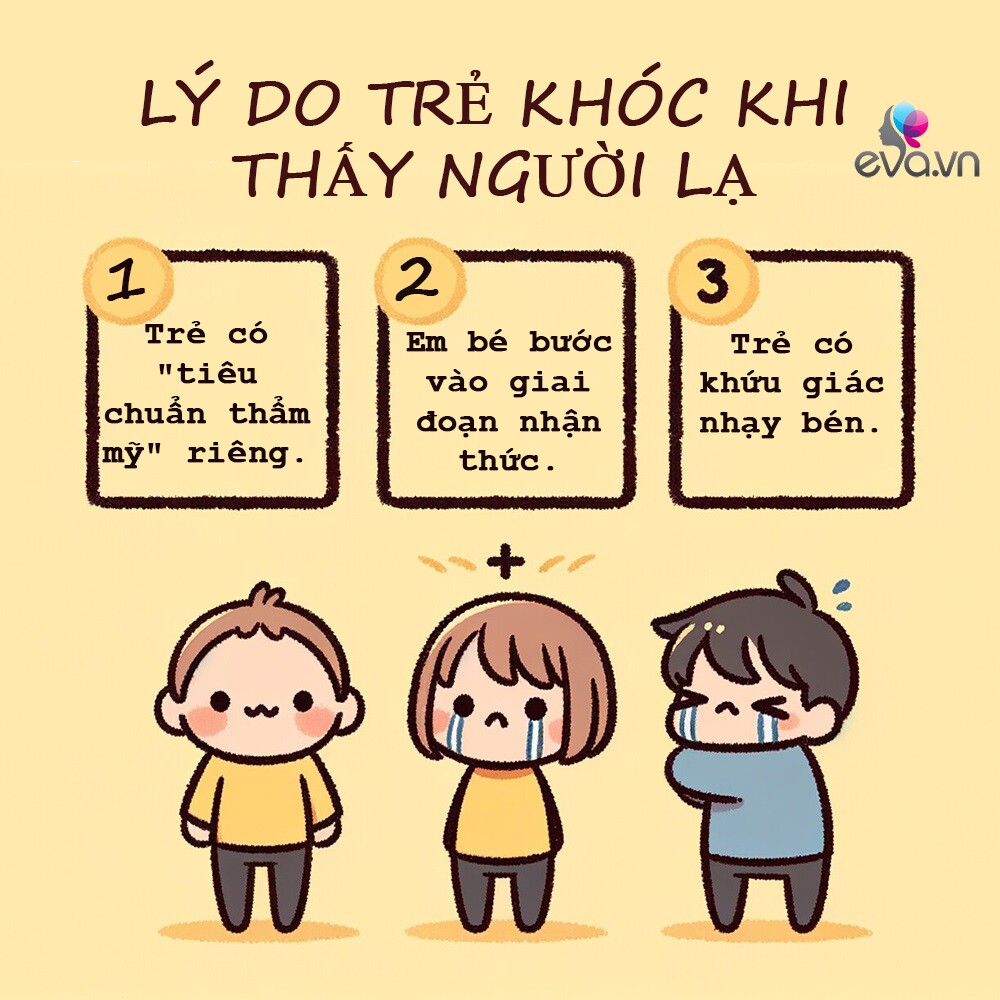
This is not a figment of imagination. Psychological research has found that newborns between three and six months old can react differently to various faces.
Experiments have shown that newborns tend to look at attractive faces significantly longer than ordinary faces, even if they are photos of other infants.
This indicates that although newborns cannot speak, they can sense the attractiveness of facial features, and their aesthetic preferences align closely with those of adults. In other words, even if they cannot express themselves verbally, they know what they find appealing.
When a newborn sees someone they consider “handsome” or “beautiful,” they tend to relax and become intrigued. However, if the person’s appearance or expression does not meet their “aesthetic standards,” they may feel rejected, scared, or cry to express their discomfort.
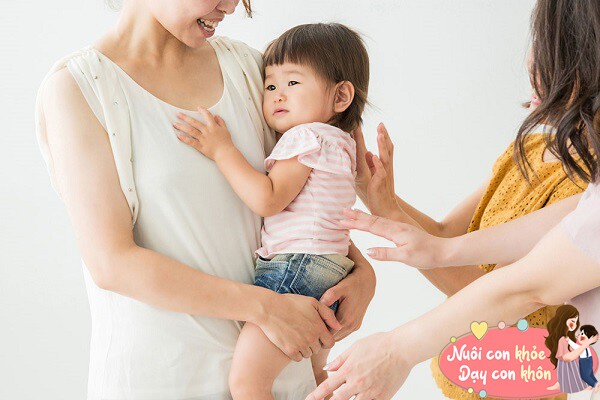
Newborns possess unique aesthetic standards.
Advice: Newborns can distinguish colors as early as two months old. Therefore, parents can stimulate their neurological visual development using black-and-white image cards, bright-colored blocks, or similar visual aids.
In daily life, parents should use language to help develop their child’s aesthetic sense by making comments like, “The dress she’s wearing today is so pretty”, or “Look at the beautiful color of those flowers”.
Encourage your child to observe nature, such as the blue sky, green trees, animals, and flowers, and explore the beauty in their surroundings.

Babies go through a birth-related recognition phase and need time to adapt
If your baby suddenly cries when seeing people, it’s likely because they are going through a “stranger anxiety” phase.
“Stranger anxiety” is a common phase in the development of most newborns and infants, typically peaking between five and ten months.
As babies learn more about their surroundings, their fear of strangers tends to diminish. However, between the ages of two and three, children may become more dependent on their parents and reject others.
From a psychological development perspective, stranger anxiety is a positive sign. It indicates that the child’s memory, environmental awareness, and self-awareness are rapidly developing, and it also serves as a self-protection mechanism.
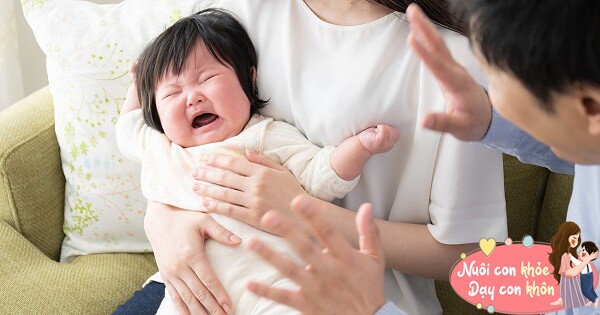
Don’t force your child to get close to someone they are uncomfortable with.
However, if parents mishandle these situations or frequently force their child to interact with strangers during this phase, it could make the child more timid and insecure.
Advice: Take your baby to parks and play centers to provide opportunities for them to meet other children and gradually get used to strangers in a safe environment.
Avoid forcing your child to be held or touched by someone they are resisting, as it will only increase their resistance.
It’s best to have multiple family members take turns caring for the baby to prevent the child from becoming overly dependent on a single caregiver.
If your baby cries when a relative or friend visits, you can suggest that they offer the baby a favorite toy or snack to help build a positive association.

Newborns have a keen sense of smell and will reject unfamiliar odors
In fact, a newborn’s sense of smell is ten times more sensitive than that of an adult. Soon after birth, babies can easily distinguish their mother’s scent.
Researchers in the UK conducted an experiment where they placed shirts worn by the mother and other women on the left and right sides of an infant.
The results showed that by the sixth day, most newborns tended to turn their heads toward their mother’s shirt, indicating that scent is a crucial “safety signal” for infants.
If a baby detects the smell of smoke, alcohol, sweat, perfume, or body odor, they may instinctively feel rejected, scared, or cry due to their heightened sensitivity.
Don’t assume that “babies don’t understand.” They may not be able to verbalize their thoughts, but their emotions are very real.
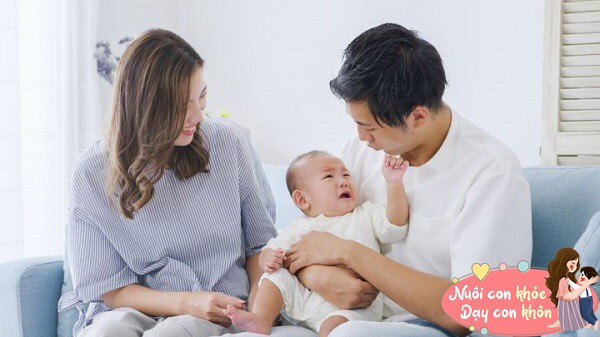
Newborns possess a keen sense of smell and will reject unfamiliar odors.
Advice: If someone in your household has just smoked, consumed alcohol, or is sweaty and wants to hold the baby, explain the situation to them beforehand to avoid upsetting your child.
Avoid taking your baby to places with strong odors, such as a kitchen with lingering cooking smells or an enclosed, poorly ventilated space.
Maintain a well-ventilated and odor-free home environment. Regularly take your baby outdoors to places with fresh air to improve their olfactory adaptability and strengthen their immune system.
When a newborn cries upon seeing a stranger, it is not due to bad luck or any supernatural phenomenon. Instead, it stems from their innate awareness, psychological development, and physiological responses.
Parents should approach this situation from a scientific perspective and understand the actual reasons behind their child’s behavior. Each crying baby perceives the world through their instincts. Give them time, support them as they grow, and one day, they will enter this colorful world with a smile.




































